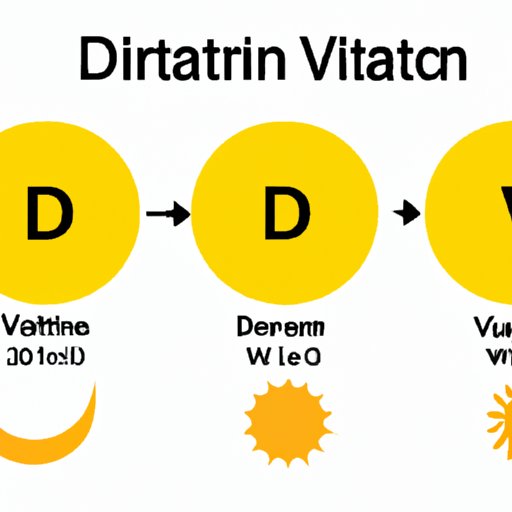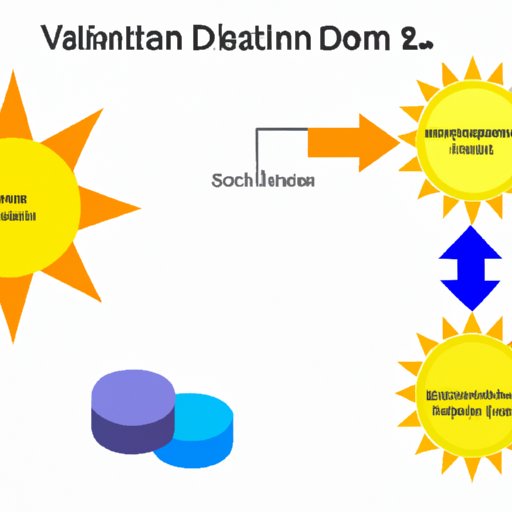
Does Vitamin D3 Give You Energy?
Vitamin D3 is a vital nutrient that has multiple benefits for our body. It is essential for maintaining strong bones and teeth, boosting immune system function, and promoting healthy brain function. However, one of the most significant benefits of Vitamin D3 is its ability to enhance our energy levels and improve physical and mental performance. In this article, we will explore the relationship between Vitamin D3 and energy, examining how it works in the body and evaluating the scientific evidence supporting its benefits.
The Benefits of Vitamin D3 in Boosting Energy Levels
Vitamin D3 works in the body through various physiological mechanisms. One of the critical functions of Vitamin D3 is its role in the absorption of calcium and phosphorus, both of which are essential for maintaining bone health. Additionally, Vitamin D3 can boost energy levels by supporting muscle function and reducing fatigue.
According to research, Vitamin D3 can help increase endurance and reduce fatigue levels, allowing individuals to remain active for longer durations. A study conducted in 2015 found that elite professional soccer players who took Vitamin D3 supplements experienced significant improvements in their aerobic capacity, muscle strength, and overall performance. Another study conducted in 2018 found that Vitamin D3 supplementation helped reduce symptoms of fatigue and depression in women with reproductive health disorders. These findings suggest that Vitamin D3 can play a crucial role in enhancing energy levels and improving physical and mental performance.
Exploring the Relationship Between Vitamin D3 and Fatigue
Fatigue is a common condition that can affect both physical and mental well-being. It is often characterized by a feeling of persistent tiredness, lack of energy, and motivation. While there can be several causes of fatigue, research has shown that Vitamin D3 deficiency can be one of them.
A study published in the “North American Journal of Medical Sciences” found that a majority of patients with unexplained fatigue had low levels of Vitamin D3. The study suggested that Vitamin D3 supplementation may help alleviate fatigue and improve overall quality of life. Another study conducted in 2014 found that individuals with lower Vitamin D3 levels were more likely to experience symptoms of depression, another condition that can affect energy levels. The study suggests that by treating Vitamin D3 deficiency, individuals can mitigate fatigue and improve their emotional well-being.
How Vitamin D3 Regulates Mood and Enhances Alertness
Vitamin D3 is also known to have a significant impact on mood and cognitive function. Research shows that Vitamin D3 regulates the production of neurotransmitters in the brain, such as serotonin and dopamine, that play a vital role in regulating mood and enhancing alertness.
A study conducted in 2017 found that Vitamin D3 supplementation helped improve cognitive function, impulse control, and mood in healthy adults. Another study conducted in 2015 found that Vitamin D3 supplementation improved mood and cognitive function in women with Type 2 diabetes. These findings suggest that Vitamin D3 can play a crucial role in regulating mood and cognitive function.
Understanding the Role of Vitamin D3 in Regulating Sleep Patterns
Sleep is a fundamental part of maintaining our energy levels, and Vitamin D3 plays a vital role in regulating our sleep-wake cycle. Research suggests that Vitamin D3 deficiency can be linked to sleep disorders such as insomnia and sleep apnea.
A study conducted in 2012 found that Vitamin D3 supplementation improved sleep quality in individuals with sleep disorders. Another study found that individuals with higher Vitamin D3 levels had better sleep quality overall. These findings suggest that Vitamin D3 can be beneficial for regulating sleep patterns and improving overall energy levels.

An Overview of Studies on the Connection Between Vitamin D3 and Energy
Several studies have investigated the relationship between Vitamin D3 and energy. However, many of them have had mixed results or limitations that make it challenging to draw definitive conclusions.
One of the most significant limitations of these studies is the lack of consistency in Vitamin D3 dosing, with some studies using doses that exceed the recommended daily intake. Additionally, many studies focus only on specific populations, making it challenging to generalize the findings to the broader population.
Despite these limitations, several studies have shown promising results about the benefits of Vitamin D3 on energy levels. A study conducted in 2018 found that athletes who took high-dose Vitamin D3 supplements reported increased improvement in performance and energy levels compared to those who took a placebo. Another study conducted in 2014 found that low Vitamin D3 levels were associated with increased fatigue and reduced exercise endurance.
Discovering the Best Sources of Vitamin D3 to Improve Energy Levels
Vitamin D3 can be obtained from various sources, including sunlight, food, and supplements. The best source of Vitamin D3 is sunlight, as exposure to UVB radiation helps the skin produce Vitamin D3 naturally. However, not everyone can get sufficient Vitamin D3 from sunlight alone, especially during the winter months.
Food sources of Vitamin D3 include fatty fish, mushrooms, egg yolks, and fortified products such as milk, cheese, and cereal. Supplements are also a convenient option and can be found in a variety of forms, including capsules, tablets, and drops.
When it comes to selecting the best source of Vitamin D3, it’s essential to balance convenience with effectiveness. For individuals who can get adequate sunlight exposure, spending time outdoors is an excellent way to boost Vitamin D3 levels naturally. For others, consuming Vitamin D3-rich foods or taking supplements can be an effective way to increase intake.
Combining Vitamin D3 and Other Supplements to Maximize Energy and Focus
Other supplements can be combined with Vitamin D3 to enhance energy and focus. For example, caffeine, creatine, and ginseng can help boost energy levels, while omega-3 fatty acids and magnesium can enhance cognitive function and mood.
However, it’s crucial to be cautious when combining different supplements, as some may interfere with each other or cause adverse effects. It’s always best to consult with a healthcare professional before combining supplements to ensure safety and effectiveness.
Conclusion
In conclusion, Vitamin D3 plays a crucial role in enhancing energy levels, regulating mood, and improving sleep quality. While further research is needed to confirm its benefits conclusively, studies suggest that Vitamin D3 supplementation can be beneficial for individuals experiencing fatigue, low mood, and cognitive decline. By incorporating Vitamin D3-rich foods or supplements into our daily lives, along with other healthy lifestyle practices, we can improve our energy levels and overall well-being.





